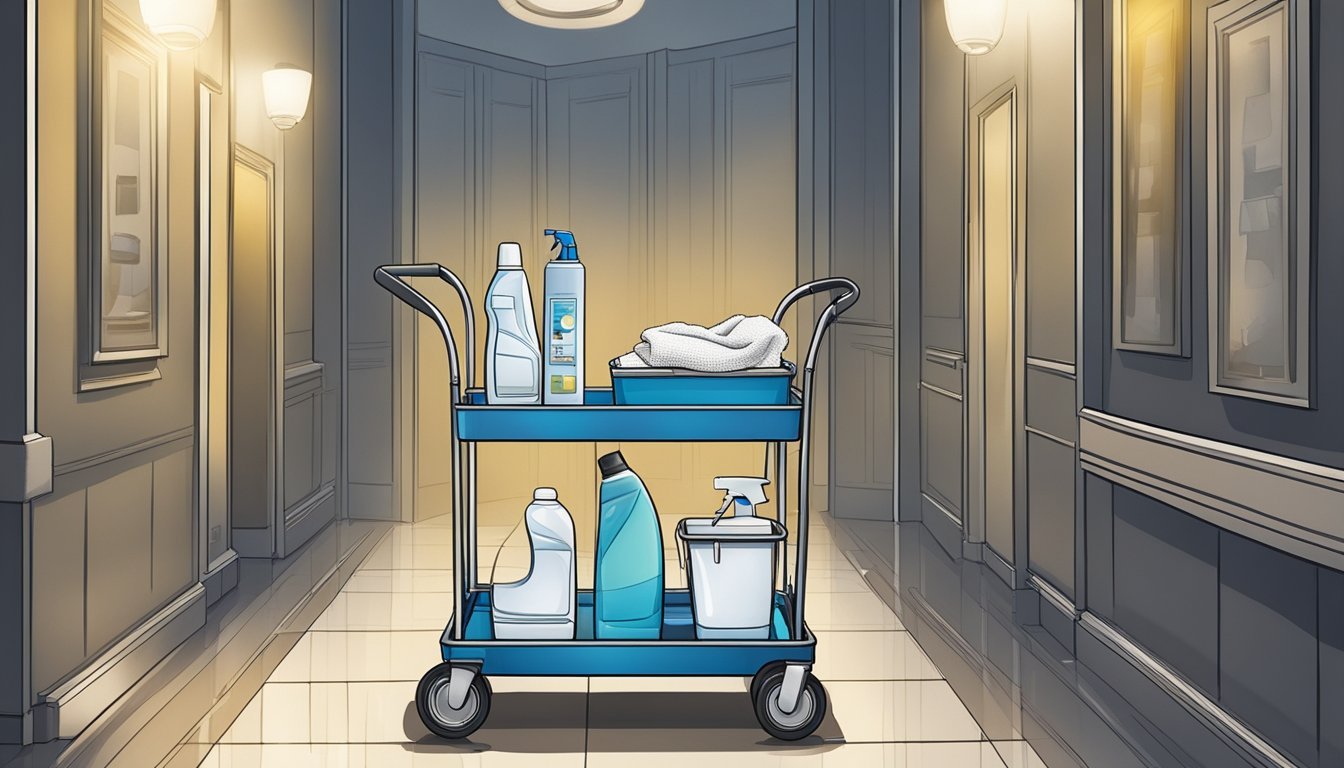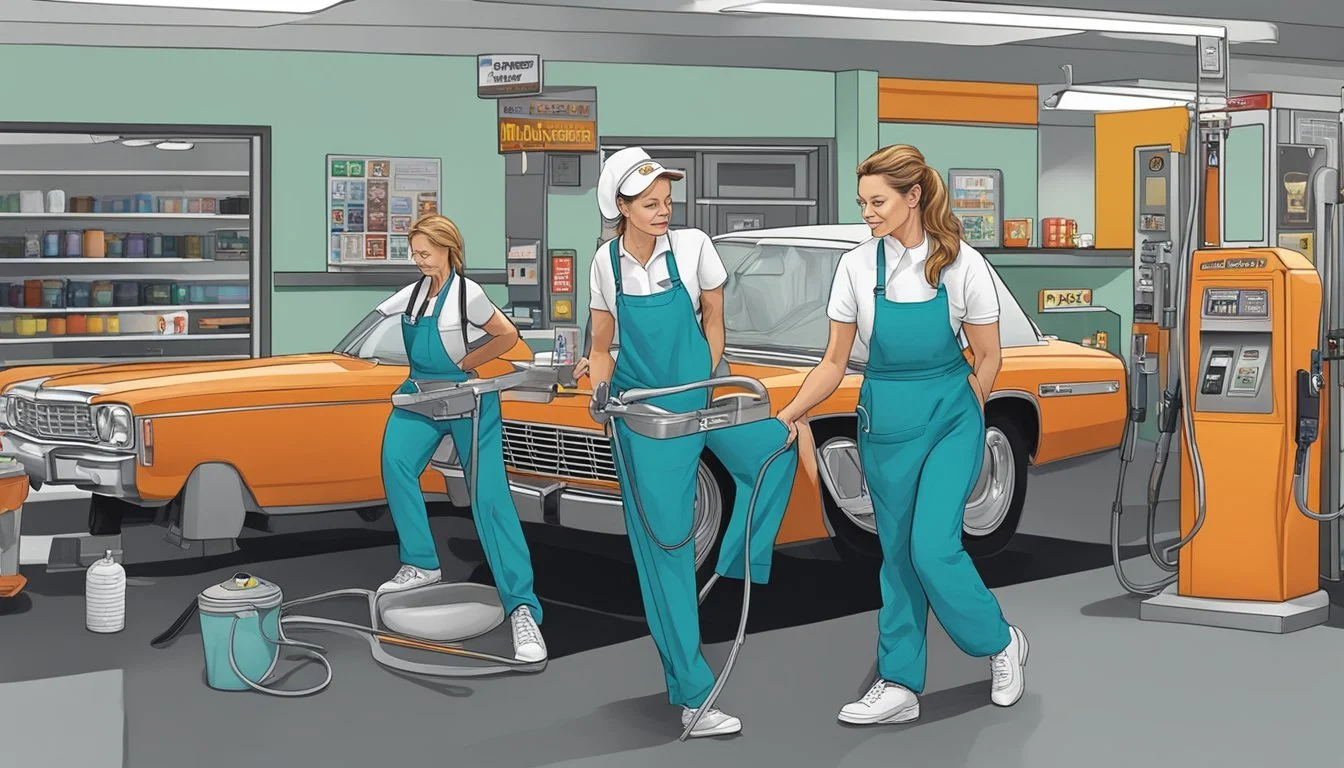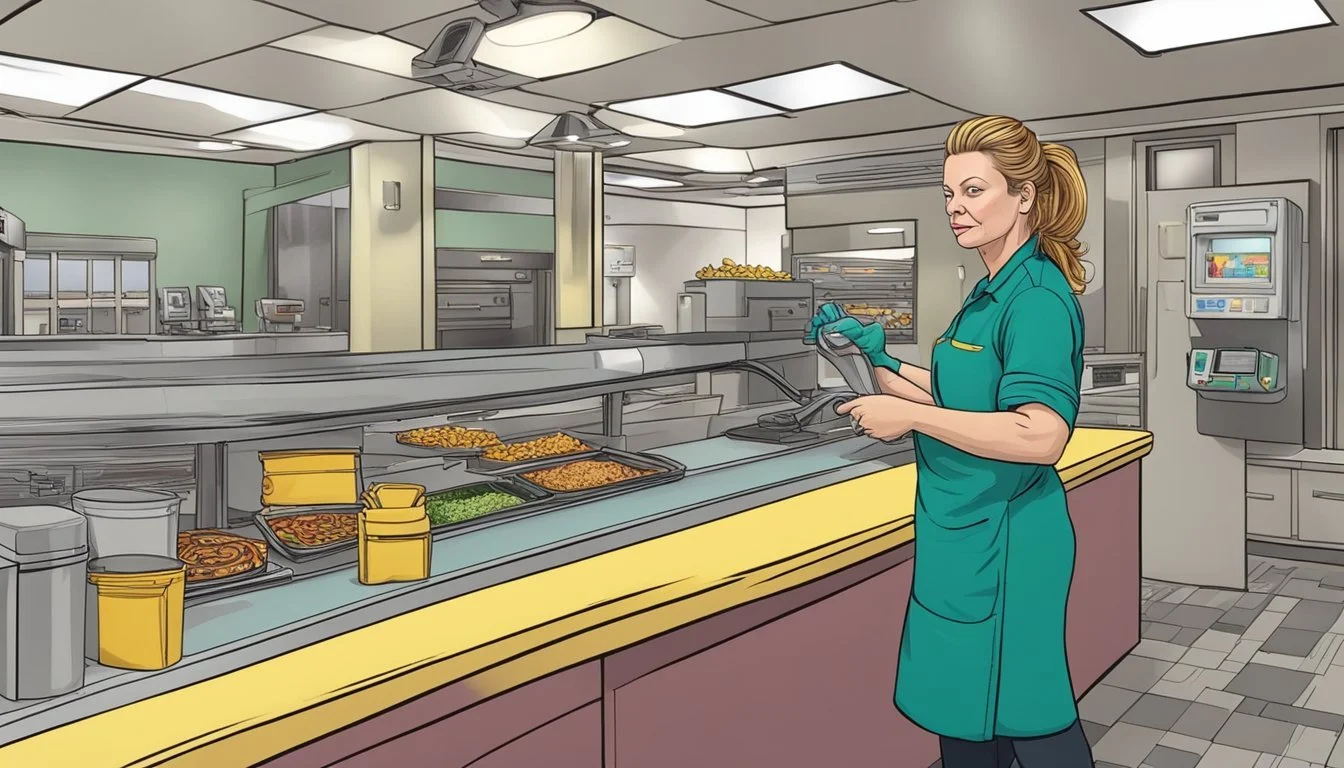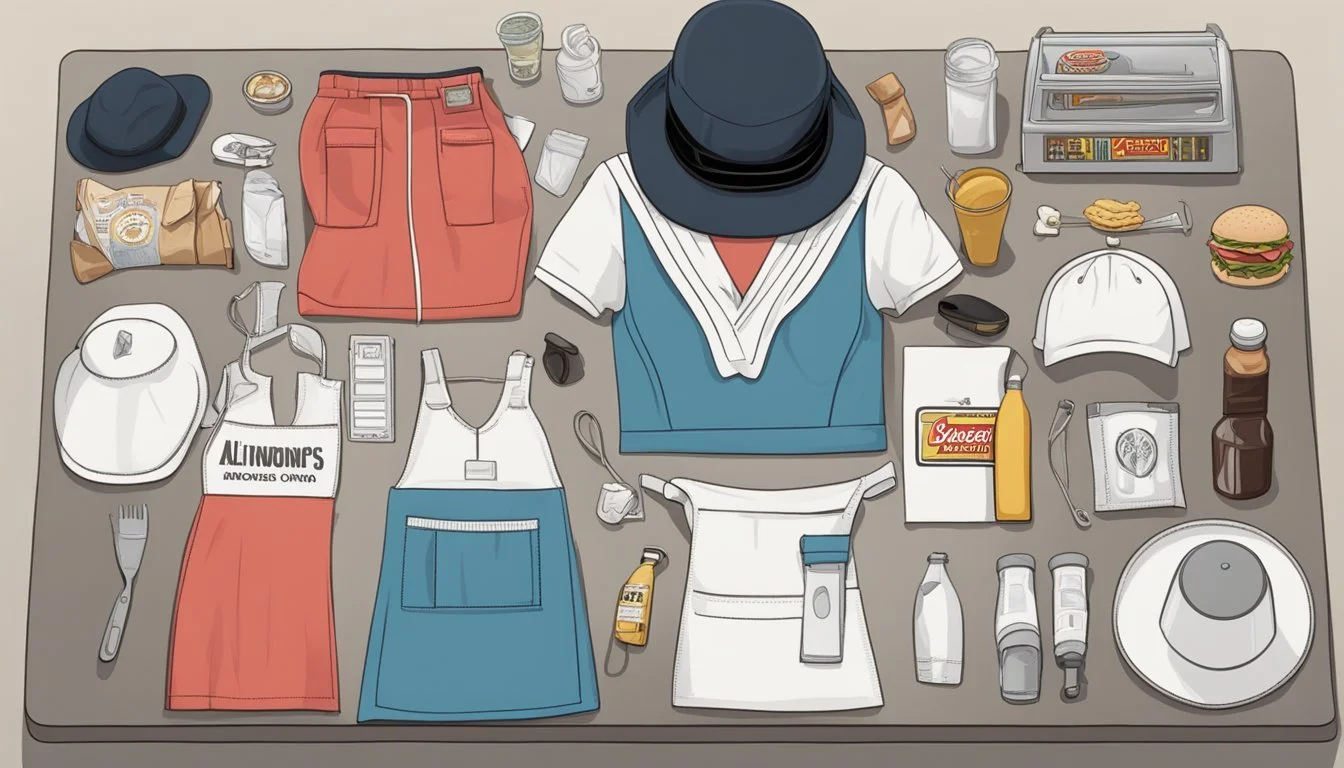Aileen Wuornos: 5 Surprising Jobs Held by the "Monster"
Pre-Crime Career Revealed
Aileen Wuornos gained notoriety as a serial killer in Florida during the late 1980s and early 1990s. Her life story became the subject of numerous documentaries, books, and the critically acclaimed film "Monster" starring Charlize Theron. While much attention has been given to her crimes, less is known about her life before she turned to murder.
Before her infamous killing spree, Aileen Wuornos held several surprising jobs that shed light on her complex background. These occupations ranged from mundane to unexpected, offering glimpses into the experiences that shaped her life prior to becoming a notorious figure in criminal history. Examining these lesser-known aspects of Wuornos' past provides a more nuanced understanding of the woman behind the "Monster" moniker.
1) Tire Repair Technician
Before her notorious killing spree, Aileen Wuornos worked as a tire repair technician. This job involved fixing flat tires, patching punctures, and performing basic tire maintenance.
Wuornos gained practical skills in handling various tools and equipment associated with tire repair. She learned to identify different types of tire damage and apply appropriate repair techniques.
Working in this field required physical strength and dexterity, as tire repair often involves lifting heavy tires and operating machinery. Wuornos likely developed a keen eye for detail and problem-solving abilities in this role.
The job of a tire repair technician typically involves interacting with customers, explaining issues, and providing service recommendations. This experience may have honed Wuornos's communication skills.
Tire repair work often takes place in garage settings or mobile service units. Wuornos would have been exposed to various work environments and potentially diverse clientele during her time in this occupation.
2) Hotel Maid
Aileen Wuornos worked briefly as a hotel maid during her tumultuous life. This job provided a glimpse into a more conventional lifestyle for the woman who would later become known as the "Monster."
As a hotel maid, Wuornos performed typical housekeeping duties. She cleaned rooms, changed linens, and maintained the overall cleanliness of the hotel. This position required attention to detail and the ability to work efficiently.
Wuornos' time as a hotel maid was relatively short-lived. The structured environment of hotel work did not align well with her unstable lifestyle and personal struggles.
Interestingly, Wuornos' connection to the hotel industry extended beyond her brief employment. In 1986, she met Tyria Moore, a hotel maid, at a gay bar in Daytona Beach, Florida. The two quickly became romantically involved and moved in together.
Moore's steady job as a hotel maid contrasted with Wuornos' sporadic employment and reliance on prostitution. This period in Wuornos' life, while seemingly ordinary, preceded the violent crimes that would later define her notoriety.
3) Truck Stop Waitress
Aileen Wuornos worked as a truck stop waitress during her tumultuous life. This job provided her with a steady income for a period of time. Truck stops are known for their 24-hour service and constant flow of customers.
As a waitress, Wuornos likely served coffee, meals, and snacks to weary truck drivers and travelers. She would have taken orders, delivered food, and maintained a clean dining area.
The fast-paced environment of a truck stop restaurant required quick thinking and efficiency. Wuornos may have developed skills in multitasking and customer service during her time in this role.
Truck stop waitressing can be a demanding job, with long hours and challenging customers. For Wuornos, it might have offered a glimpse of stability in her otherwise chaotic life.
This experience as a truck stop waitress potentially exposed Wuornos to a diverse range of people. It may have influenced her later interactions and choices, though the extent of its impact remains unclear.
4) Rodeo Rider
Aileen Wuornos briefly dabbled in the world of rodeo riding during her tumultuous youth. This unexpected foray into the arena occurred in her late teens, shortly after leaving her home state of Michigan.
Wuornos spent time in Colorado, where she became acquainted with the rodeo scene. She participated in local events, primarily as a barrel racer, showcasing her fearless nature and desire for excitement.
Her stint as a rodeo rider was short-lived, lasting only a few months. Despite her limited experience, Wuornos reportedly enjoyed the adrenaline rush of competing in front of crowds.
This period in Wuornos' life demonstrates her willingness to try new experiences and take risks. It also highlights her nomadic lifestyle, constantly moving from place to place in search of purpose and belonging.
While her time as a rodeo rider was brief, it represents an intriguing chapter in Wuornos' life before her descent into crime. This experience stands in stark contrast to her later infamy as a serial killer.
5) Brewery Worker
Aileen Wuornos worked briefly at a brewery in Michigan during her early twenties. This job marked one of her attempts to find stable employment before her life took a darker turn.
At the brewery, Wuornos performed various tasks related to the beer production process. She likely assisted with bottling, packaging, and general maintenance duties.
The brewery job provided Wuornos with a temporary source of income and structure. However, like many of her other employment endeavors, it did not last long.
This position occurred years before Wuornos began her infamous series of murders. It represents a period when she still sought conventional work opportunities.
The brewery experience may have exposed Wuornos to different aspects of industrial labor. It could have potentially offered her skills applicable to other jobs in manufacturing or production.
Aileen Wuornos: Early Life and Background
Aileen Wuornos experienced a tumultuous childhood marked by abandonment, abuse, and instability. These early experiences shaped her troubled path and set the stage for her later criminal activities.
Childhood and Family
Aileen Carol Pittman was born on February 29, 1956, in Rochester, Michigan. Her father, Leo Dale Pittman, was a convicted child molester who was in prison at the time of her birth. He later committed suicide while incarcerated.
Aileen's mother, Diane Wuornos, abandoned her and her older brother Keith when Aileen was just four years old. The children were left in the care of their maternal grandparents, Lauri and Britta Wuornos.
Living with her grandparents proved challenging for young Aileen. Her grandfather was reportedly abusive, both physically and sexually. This traumatic environment contributed to Aileen's behavioral issues and emotional instability.
Initial Struggles and Early Signs
By age 11, Aileen began engaging in sexual activities in exchange for cigarettes, drugs, and food. This behavior foreshadowed her later involvement in sex work.
At 14, Aileen became pregnant, allegedly as a result of rape by an acquaintance of her grandfather. She gave birth to a son in 1971, who was immediately placed for adoption.
Shortly after giving birth, Aileen dropped out of school and was kicked out of her grandparents' home. She began living in the woods near her old home and supporting herself through prostitution.
These early experiences of abuse, abandonment, and survival on the streets laid the groundwork for Aileen's troubled adulthood and her eventual descent into criminal behavior.
Career Path: Before the Crimes
Aileen Wuornos held several jobs and engaged in various activities prior to her infamous killing spree. Her occupations ranged from low-wage service roles to illicit pursuits, shaping her interactions with society.
Various Roles and Odd Jobs
Wuornos worked as a waitress in her early years, serving customers at local diners and bars. She also took on jobs as a motel maid, cleaning rooms and maintaining facilities. These positions provided minimal income and stability.
In addition to legitimate work, Wuornos engaged in sex work along Florida's highways. This dangerous occupation became a significant part of her livelihood.
She occasionally found employment at a laundromat, managing washing machines and assisting customers. Wuornos also worked briefly as a grocery store clerk, stocking shelves and operating cash registers.
Interactions with Society
Wuornos's employment history led to frequent encounters with diverse individuals. Her waitressing and store clerk positions required customer service skills, though her temperament often clashed with societal norms.
Her work in motels and along highways exposed her to transient populations and potentially dangerous situations. These experiences likely influenced her worldview and subsequent actions.
Wuornos struggled to maintain long-term employment due to her volatile behavior and substance abuse issues. Her inability to hold steady jobs contributed to her financial instability and social marginalization.
Psychological Analysis and Motivations
Aileen Wuornos's complex psychological profile stemmed from a traumatic childhood and series of difficult life experiences. Her actions were influenced by a combination of mental health issues, substance abuse, and environmental factors.
Factors Contributing to Her Actions
Wuornos experienced severe neglect and abuse during her formative years. Abandoned by her mother and raised by her grandparents, she faced sexual abuse and became pregnant at 14. These early traumas likely contributed to her developing antisocial personality disorder and borderline personality traits.
Substance abuse played a significant role in Wuornos's life. She began drinking heavily as a teenager and later used drugs. This addiction fueled her unstable lifestyle and impaired judgment.
Wuornos's work as a sex worker exposed her to dangerous situations. Repeated violent encounters may have heightened her paranoia and aggression.
Expert Insights
Forensic psychologists have identified several key factors in Wuornos's case. Many experts believe she exhibited traits of post-traumatic stress disorder (PTSD) due to her history of abuse and life on the streets.
Some professionals argue that Wuornos's crimes were partly motivated by a deep-seated hatred of men, stemming from her experiences of abuse and exploitation. This misandry may have combined with her survival instincts in high-stress situations.
Wuornos's inability to form stable relationships and her pattern of impulsive behavior align with characteristics of borderline personality disorder. This condition likely contributed to her emotional volatility and difficulty controlling her actions.









